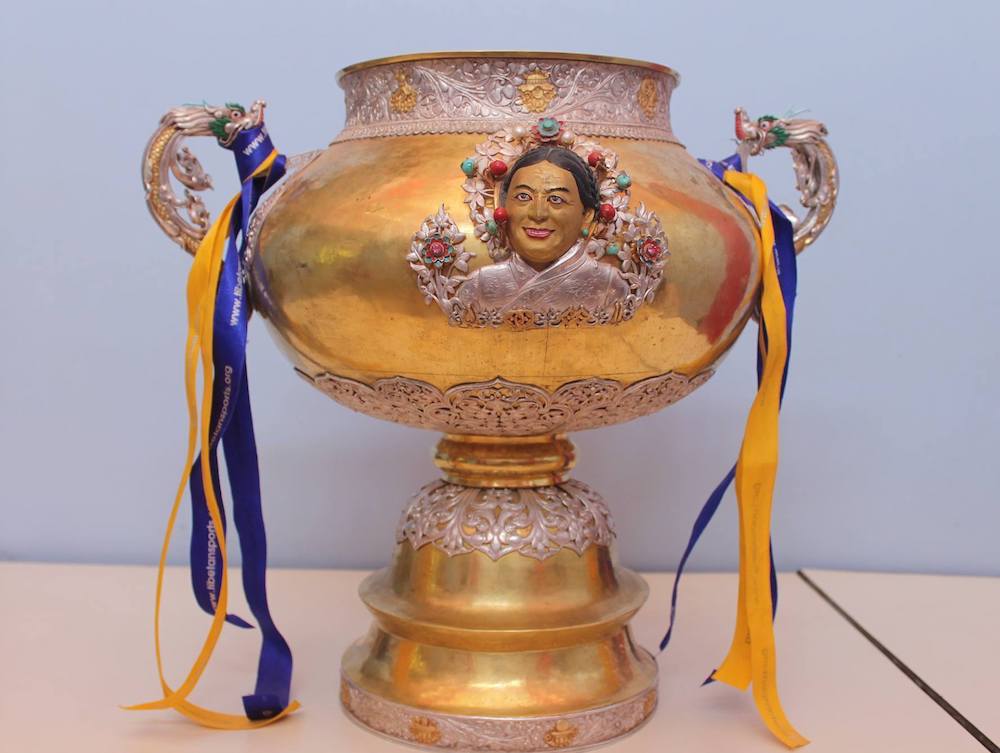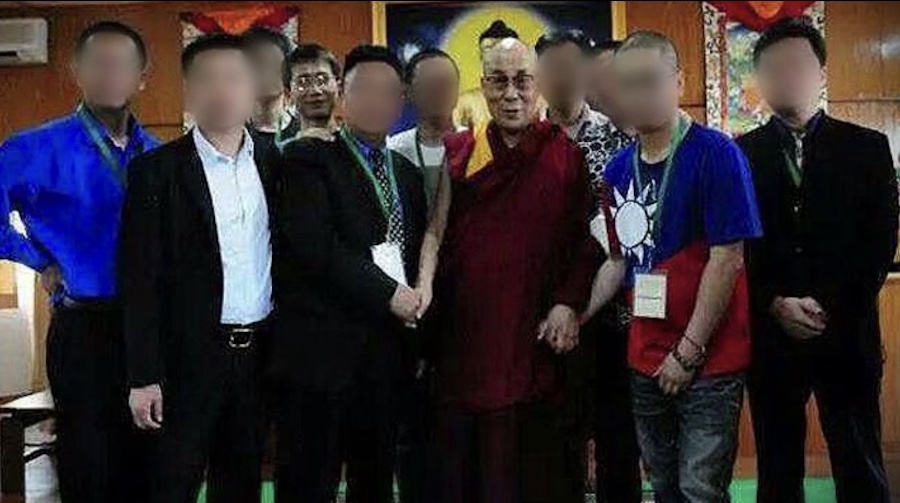By Jeff Gammage
Inquirer Staff Writer
 Seventeen demonstrators stood in the pouring rain at 10th and Race Streets last Thursday, ignoring drenched clothes and soggy shoes to publicly renew demands for Tibetan freedom.
Seventeen demonstrators stood in the pouring rain at 10th and Race Streets last Thursday, ignoring drenched clothes and soggy shoes to publicly renew demands for Tibetan freedom.
Few people seemed to notice.
Cars splashed by on Race, grandmothers hurried past on canes, and delivery men darted in and out of Chinatown restaurants.
The response was a microcosm of the Tibetan dilemma: A small number of people are dedicated to the cause, but their passionate efforts effect little discernible change in the situation between Tibet and its Chinese overseers.
The Chinatown rally commemorated Tibetan Uprising Day, which marks the rebellion against the Chinese invasion and the subsequent crackdown that caused the Dalai Lama to flee into exile in India – 52 years ago.
But the Tibetans who stood holding flags and signs said they now had something they had never had before: the lesson of people’s revolts in Egypt, Tunisia, and Libya.
They said those rebellions had given their movement new impetus – and rattled Chinese leaders, who have reacted to the mildest suggestions of possible internal protest by blocking streets and beating up journalists.
“We see a change coming,” said Karma Gelek, president of the Tibetan Association of Philadelphia. “The change in Tunisia and Egypt – we’re hoping this will sweep to the Chinese mainland.”
But Jeffrey Wasserstrom, a professor of Chinese history at the University of California, Irvine, said it was hard to see a freedom wave washing onto the mainland.
“The challenge for the ‘Free Tibet’ movement is simply that, given China’s increased economic role in the world and the interdependence of economies around the world, it’s harder than it once was to get foreign governments to risk alienating China.”
It’s true, said Wasserstrom, author of China in the 21st Century, that the Middle East offers fresh examples of entrenched, authoritarian regimes that were believed to be unmovable – only to be moved. But the Chinese government has presented the unrest in those countries as a threat to stability of the people who live there.
Subsequent, anonymous Internet calls for a “Jasmine Revolution” drew plenty of journalists and security officers, but no street protests.
“It would be easy to give up,” said Cathy Granett, a Rosemont woman who has been involved in the Free Tibet movement since the 1970s. “But I look at it this way: The Tibetans don’t give up, so I’m not giving up.”
This year’s Uprising Day demonstrations in Philadelphia and elsewhere came as the Chinese government’s animosity toward the Dalai Lama reached new levels of ridiculousness, with a leader of avowedly atheist China insisting that Tibet’s spiritual leader must reincarnate after his death.
The Dalai Lama, 76, has suggested he might handpick his successor, breaking with the tradition of reincarnation. China has issued regulations requiring that all Tibetan reincarnations be approved by the Chinese government – setting up a battle over the legitimacy of the next Dalai Lama.
In Chinatown, rain soaked the lanterns that hung under the awning of the Wong Wong Restaurant, and water poured off roofs in streams, feeding gutters that turned to rivers.
“People have the power. The whole world is changing now,” said Tenzin Shakya, vice president of the local Tibetan association. “We’re hoping it might change in China.”









